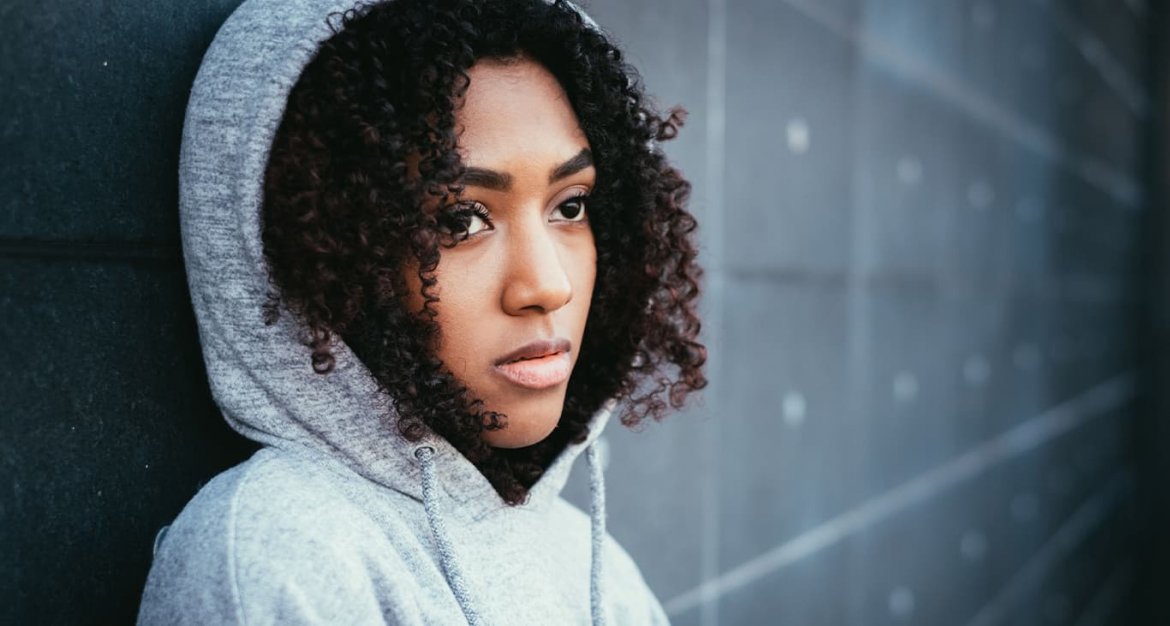
All teenagers have felt teen anxiety on some level at one time or another, whether it was the first day at school, meeting someone new, or going into an unfamiliar situation. However, clinical anxiety, also known as an anxiety disorder, is typically more intense, both physically and mentally.
A teen with an anxiety disorder may have difficulty expressing everything that is going on inside of them. They may not even be aware that the emotions and sensations they are having are actually symptoms of anxiety.
How Anxiety Feels Inside
What does it feel like inside the body and mind of a teen suffering from anxiety? Here are some of the feelings and thoughts that teens with anxiety experience:
- It feels like the walls are closing in.
- My body feels tight.
- I can’t breathe.
- I feel like I want to throw up.
- I am in danger and it’s all I can think of.
- Why isn’t everyone else screaming?
- I want to scream.
- I want to cry.
- I feel dizzy.
- I want to hide.
- I want to run.
- I am literally paralyzed by fear.
- I don’t want to get out of bed.
- I am panicked.
- This is too much; I can’t do this.
- I want to lose myself in something.
- I want to close my eyes, cover my ears, and block out the world.
- My heart is pounding and my chest feels so tight.
- I am so sweaty.
- I have knots in my stomach.
- My arms and legs hurt.
- I am overwhelmed.
- Why is everyone else acting normal?
- I feel like I am losing my mind.
- Everyone is staring at me.
These sound like reactions to a terrifying, life-threatening situation, right? Now imagine having these feelings in relation to everyday things, like getting out of bed, going to school, answering a question in class, eating in public, or using a public restroom. Teens who suffer from anxiety disorders have these types of responses to events that are unremarkable to those who don’t have teen anxiety.
The Physical Side Effects of Anxiety on the Body
In addition to how anxiety feels in the moment, teens may experience more severe physical side effects of anxiety over time, including:
- Weight loss or weight gain
- Sleep disturbances
- Inability to concentrate
- Fatigue
- Headaches or migraines
- Gastrointestinal problems
- Not feeling rested after sleep.
Often, teens will have unexplained aches and pains or complain of not feeling well, even though a medical examination cannot provide any reason for their physical symptoms. When the brain spends too much time in “fight-or-flight” mode, the result can be long-term physical problems such as a lowered immune system, heart problems, and other mental health disorders. Research shows that the nervous systems of teens with generalized anxiety react differently than the systems of peers who do not have teen anxiety. And these differences in reactivity may increase the likelihood of various diseases and dysfunctions.
What Triggers Anxiety?
Although every teen experiences specific symptoms and triggers, these are some of the most common triggers for teen anxiety:
- Social situations, including peer pressure
- Having to be on time and fearing they will be late
- Needing to be prepared for a class or event
- Worrying whether or not they are dressed appropriately
- Taking tests or answering questions
- Speaking in front of people, even socially
- Fear of doing something embarrassing
- Going to school or another location outside the home
- Confrontation with anyone
- Going someplace or trying something new.
There are many types of anxiety disorders and panic disorders, including Obsessive-Compulsive Disorder (OCD) and specific phobias that carry their own individual triggers. Some teens may have multiple diagnoses with overlapping triggers and symptoms. However, the one thing anxiety disorders typically have in common is the way they make teens feel—physical and mental sensations that are far more extreme than the situation would appear to warrant.
Is Teen Anxiety Treatable?
Most teen anxiety is very treatable. The most common treatment is Cognitive Behavioral Therapy (CBT). CBT is an evidence-based modality that is proven to be effective for treating anxiety in adolescents.
In a series of CBT sessions with a licensed therapist, teens can learn how to change the way they think. The therapist leads them through exercises that allow them to see how negative thinking impacts their emotions and behaviors, and helps them shift their thinking so they can shift their responses to triggers.
In this way, the mental causes of anxiety are defeated before the anxiety can take over. Ideally, teens leave CBT empowered and equipped with the tools they need to navigate their anxiety and enjoy life again.
Sources:
Ann Saudi Med. 2011 May-Jun; 31(3): 250–257.
Child Adolesc Psychiatr Clin N Am. 2011 Apr; 20(2): 217–238.


